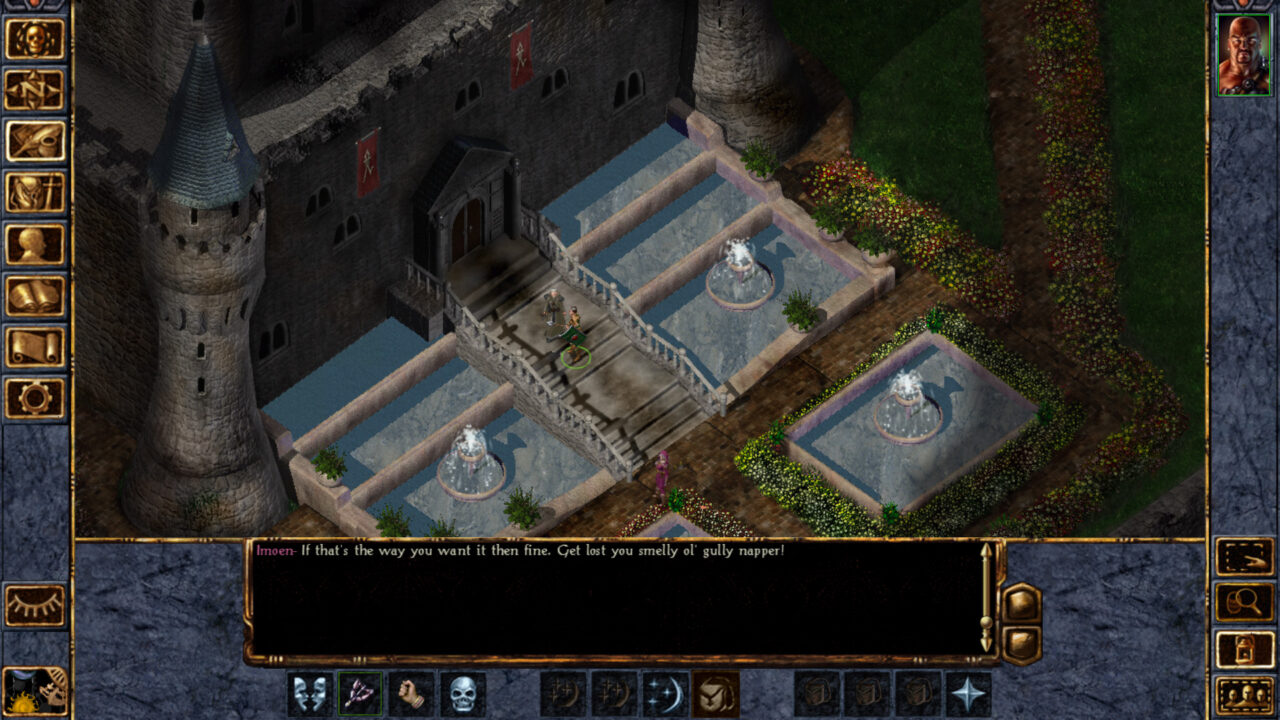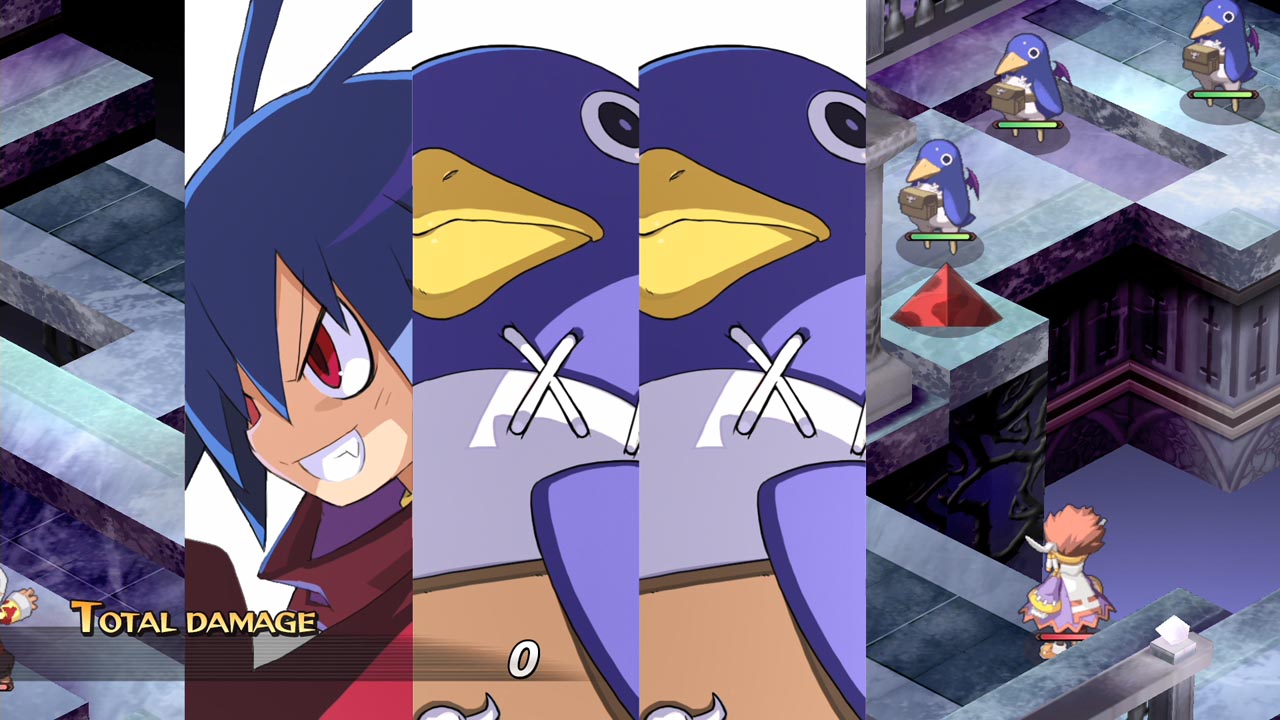1. Final Fantasy VII
Purchasing a copy of this landmark RPG from my local HMV store in 1997 was a shot in the dark for me. I hadn’t been that aware of JRPGs, or much of the broader Japanese entertainment culture, prior to this act. But the cover looked stylish, and the screenshots on the back seemed dark, moody, and just a bit different from other stuff I’d played. And three discs? Man, this must be good! Of course, it was. For me, Final Fantasy VII opened the doorway not just to JRPGs, but to the wider window of a different community of creativity. For that, I shall be forever grateful.
2. Baldur’s Gate
Baldur’s Gate was the exciting moment when I realized I could chuck my D20s, calculate my THAC0s, and undertake death rolls in a format not tied to a book or an evening with increasingly inconsistent gaming friends. Student life at the time was lonely, and the verisimilitude of the Baldur’s Gate world, with its earnest prose and unrelenting difficulty, was just what I needed to keep me going for most of an academic year. I could even forgive the need to switch between the five(!) CDs, given how good the game was. And I still get the feels for Gorion’s demise at the end of the prologue, all these years later: A familiar voice startles you, though it is calm and caring. “You cannot go back this way, child. You must go on.”
3. The Elder Scrolls III: Morrowind
The Elder Scrolls III: Morrowind was a janky mess most of the time. The combat was crappy, and traveling anywhere took forever. Everything was so slow! But despite this, the world was unlike anything I’d seen, and the character design and skills didn’t conform to how I usually approached RPGs, either at the table or in computer games. Morrowind taught me an important lesson: don’t be a snob about what you think high fantasy stories, worlds, and people should be.
4. Disgaea: Hour of Darkness
This maths-hard, story-light slice of statistical cake strongly informed my early forays into tactical turn-based RPGs. Whisper it quietly, but I reckon a few of my RPGFamily suspect I’m a little partial to the turn-based tactical side of the genre, and Disgaea shaped that greatly. I spent hundreds of hours grinding in this thing. Classes, abilities, equipment. I wanted it all. And I wanted more.
5. Mass Effect
We all know that the sequels were the better games, with better structure and deeper characterization, but Mass Effect set the tone for the series. It was a tone that I hadn’t seen done similarly in any other game at the time. Whereas Star Ocean, KotOR, and Xenosaga were fantastic and distinct sci-fi RPGs in their own right, Mass Effect had the action movie quality. It was a game I could talk about, swap hints about, and fight about with my brothers; such was its ubiquity. And for being one of those games that bonded us, Commander Shepard earns more than a few paragon points from me.
Non-RPG 1: Championship Manager 1999/2000
For those who follow soccer sims, the Championship Manager “one more game” effect is very real. And ever since this version — which I played more than any other — the series’ social ubiquity has only grown. I have the latest version open as I write this, as it’s such a part of my psyche that it’s like a database app that I can just dip in and out of. A few tactical tweaks here, a few outside offers for a new wingback there. It’s another of those games that bonds me to family in a way that few games can do.
Non-RPG 2: Civilization II
Civilization II introduced me to more turn-based goodness, more statistical goodness, and more social bonding time with my brothers. It’s almost the epitome of what games do for me. And fighting off modern-day armies with a few cavemen and musketeers never gets old, nor does defending slim sea channels with mountains of mass-produced galleons.





